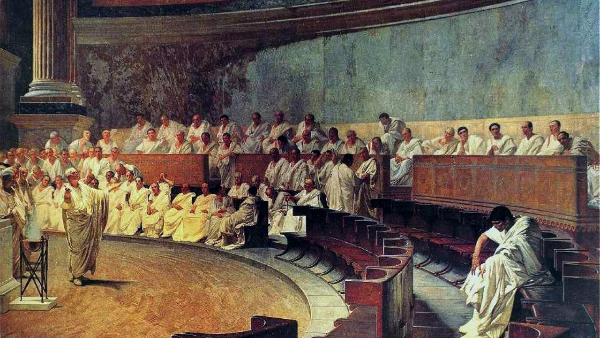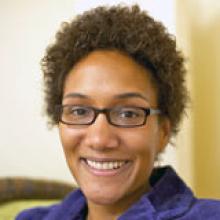

Failure in, and of, Political Oratory (Section 3)
October 18, 2020 @ 4:30 pm - 6:00 pm
| FreeOther realms of verbal art embrace failure as part of the creative practice; Samuel Beckett’s adage “fail better” springs to mind (the flawed novel; the play with a weak third act; the half-good poem). By contrast, political oratory leaves little scope for interesting failure. This seminar will focus on two related topics: the historical study and treatment of failure in political rhetoric, and the more abstract, ethical consideration of the failure of political rhetoric. Readings will include case studies from ancient Greece; Aristotle’s rhetorical theory; Quintilian’s handbook on oratorical education; advice from eighteenth and nineteenth century American rhetorical handbooks, some classic instances of failure / infelicity in American political oratory in the last century, and readings from contemporary rhetorical theory. We will focus primarily on the use of language, but we will also consider non-verbal communication and the significance of the medium in determining success and failure in political oratory. Finally, in the context of the present election cycle, we will also consider the complexity of classifying failure in political rhetoric in a deeply factional political climate in which speakers often set out to antagonize an out-group of listeners and to foment division.
This seminar is offered online by EverScholar. In order to encourage an optimal discussion experience, enrollment is limited to 9 persons. However, the seminar is also offered at two other times, also with Professor Greenwood. Register for the session that you are certain you can attend.
Our Professor: Emily Greenwood, Professor of Classics, Yale University
Emily Greenwood is Professor of Classics and Chair of the Classics department at Yale. She trained at the University of Cambridge and then taught at the University of St Andrews in Scotland before joining the faculty at Yale in 2009. She specializes in ancient Greek prose literature of the fifth and fourth centuries BCE, with a particular interest in historical narratives. Her initial interest in Classics grew out of curiosity about the circulation of ancient Greek and Roman works in so many different guises in the modern world and this curiosity continues to guide her research and teaching. In both she foregrounds questions of transmission, translation, adaptation and the role that different interpretative communities and traditions play in creating the works that we study. It is this interest in adaptation and the dynamic interrelationship between so-called “original” or “source” texts and subsequent versions which led to her collaboration on a course on The Tempest and its versions. She has published books on Thucydides’ History (Thucydides and the Shaping of History, 2006), and on responses to the Classics in Anglophone Caribbean Literature (Afro-Greeks, 2010). Her current research projects include reading Thucydides as war literature, and a tentative, tropological encyclopedia of Black Classicism.
Registration is now open! Register by filling out the brief form below.
